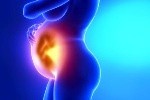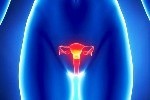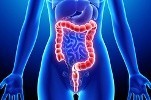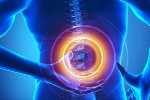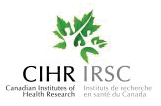Polycystic Ovary Syndrome
Polycystic ovary syndrome (PCOS) is a very common condition affecting 4% to 18% of women. These clinical features include reproductive manifestations such as reduced frequency of ovulation and
irregular menstrual cycles, reduced fertility, polycystic ovaries on ultrasound, and high male hormones such as testosterone which can cause excess facial or body hair growth and acne.
PCOS is also associated with metabolic features and diabetes and cardiovascular disease risk factors including high levels of insulin or insulin resistance and abnormal cholesterol levels. Being
overweight worsens all clinical features of PCOS. PCOS affects quality of life and can worsen anxiety and depression either due to the features of PCOS or due to the diagnosis of a chronic disease.
A healthy lifestyle consists of a healthy diet, regular exercise and achieving and maintaining a healthy weight.
Causes
It is not completely understood why or how the changes in the hormone level occur, and it is likely to be the resulit of a number of both genetic (inherited) as well as environmental factors. Women with PCOS often have a mother or sister with the condition, and researchers are examining the role that genetics or gene mutations might play in its development.
A malfunction of the body's blood sugar control system (insulin system) is frequent in women with PCOS, who often have insulin resistance and elevated blood insulin levels, and researchers believe that these abnormalities may be related to the development of PCOS.
It is also known that the ovaries of women with PCOS produce excess amounts of male hormones known as androgens. This excessive production of male hormones may be a result of or related to the abnormalities in insulin production.
Another hormonal abnormality in women with PCOS is excessive production of the hormone LH, which is involved in stimulating the ovaries to produce hormones and is released from the pituitary gland in the brain.
Other possible contribution factors in the development of PCOS may include a low level of chronic inflammation in the body and fetal exposure to male hormone.
Symptome
The principal signs and symptoms of PCOS are related to menstrual disturbances and elevated levels of male hormones
(androgens). Menstrual disturbances can include delay of normal menstruation (primary amenorrhea), the presence of fewer than normal menstrual periods (oligomenorrhea), or the absence of menstruation
for more than three months (secondary amenorrhea. Menstrual cycles may not be associated with ovulation (anovulatory cycles) and may result in heavy bleeding.
Symptoms related to elevated androgen levels include acne excess hair growth on the body (hirsutism), and male-pattern hair loss. Other signs and symptoms of PCOS include: Obesity and weight gain,
elevated insulin levels and insulin resistance, oily skin, dandruff, infertility, skin discolorations, high cholesterol levels, elevated blood pressure.
Exams and Tests
Blood tests can be done to check hormone levels. These tests may include:
- Estrogen level
- FSH Level
- LH level testosterone
- Male hormone (testosterone) level
- 17ketosteroids
Blood tests can be done to check hormone levels. These tests may include:
- Fasting glucose (blood sugar) and other tests for glucose intolerance and insulin resistance
- Lipid level
- Pregnancy test (serum HCG)
- Prolactin level
- Thyroid function tests
Imaging test or surgeries of vaginal ultrasound and pelvic laparoscopyto look at your ovaries:
- Swollen ovaries
- Swollen clitoris (very rare)
Also weight and body mass index (BMI) and measure your belly size.
- Body mass index >27 kg/m2
- Waist-to-hip ratio >0.85
- Waist >100 cm
Diagnosis
The diagnosis of PCOS is generally made on the basisi of clinical signs and synptoms as discussed above. The doctor will want to exclude other illnesses that have similar features, such as low
thyroid hormone blood levels (hypothroidism) or elevated levels of a milk-producing hormone ( Prolatin). Also, tumors of the ovary or adrenal glands can produce elevated male hormone (androgen) blood
levels that cause acne or excess hair growth, mimicking symptoms of PCOS.
Other laboratory tests can be helpful in making the diagnosis of PCOS. Serum levels of male hormones (DHEA and testosterone) may be elevated. However, levels of testosterone that are highly elevated
are not unusual with PCOS and call for additional evaluation. Additionally, levels of a hormone released by the pituitary gland in the brain (LH) that is involved in ovarian hormone production are
elevated.
The cysts (fluid filled sacs) in the ovaries can be identified with imaging technology. (However, as noted above, women without PCOS can have many cysts as well.) Ultrasound, which passes sound waves
through the body to create a picture of the kidneys, is used most often to look for cysts in the ovaries. Ultrasound imaging employs no injected dyes or radiation and is safe for all patients
including pregnant women.
It can also detect cysts in the kidneys of a fetus. Because women without PCOS can have ovarian cysts, and because ovarian cysts are not part of the definition of PCOS, ultrasound is not routinely
ordered to diagnose PCOS. The diagnosis is usually a clinical one based on the patient's history, physical examination, and laboratory testing.
Acupuncture for Polycystic Ovary Syndrome
Stener-Victorin et al. [1–4] conducted a series of PCOS studies involving both clinical trial and animal models to interpret the possible mechanism. In their study, repeated low burst frequency (2 Hz) electroacupuncture treatment of patients with PCOS offered a favorable outcome in ovulation [1].
The low burst frequency electroacupuncture modulates the sympathetic system through the release of b-endorphin, immune responses, and the activity in the autonomic nervous system [2]. They used the steroid-induced rat model to show increased b-endorphin concentrations in the hypothalamus after low burst frequency electroacupuncture in rats with steroid-induced PCOS [2].
In the mean time, repeated electroacupuncture treatments changed the neuroendocrinological state by reducing corticotropin-releasing factor concentrations in the brain, the adrenal glands, and the ovaries in rats with estradiol valerate induced polycystic ovaries [3].
The sympathetic nerve activity in the ovaries resulting from a change in the neuroendocrinological state could be modulated by treatment with repeated electroacupuncture to downregulate endothelin-1 and nerve growth factor (NGF) and expression of NGF mRNA in the ovaries, the adrenal glands, and the central nervous system [4].
In a study by Song et al. [5], they used TCM recipes formulated by Shen-replenishing herbs and/or acupuncture to treat PCOS. This therapy combined with the Western medicine used in clinical practice showed promising result on the women with PCOS and anovulation, yet with few side effects.
Refences
1 Stener-Victorin E, Waldenstrom U, Tagnfors U, et al. Effects of electroacupuncture on anovulation in women with polycystic ovary syndrome. Acta Obstet Gynecol Scand 2000; 79:180–188.
2 Stener-Victorin E, Lindholm C. Immunity and beta-endorphin concentrations in hypothalamus and plasma in rats with steroid-induced polycystic ovaries: effect of low-frequency electroacupuncture.
Biol Reprod 2004; 70:329–333.
3 Stener-Victorin E, Lundeberg T, Waldenstro¨m U, et al. Effects of electroacupuncture on corticotropin-releasing factor in rats with experimentally induced polycystic ovaries. Neuropeptides 2001;
35:227–231.
4 Stener-Victorin E, Lundeberg T, Cajander S, et al. Steroid-induced polycystic ovaries in rats: effect of electro-acupuncture on concentrations of endothelin-1 and nerve growth factor (NGF), and
expression of NGF mRNA in the ovaries, the adrenal glands, and the central nervous system. Reprod Biol Endocrinol 2003; 1:33.
5 Song JJ, Yan ME, Wu XK, Hou LH. Progress of integrative Chinese and Western medicine in treating polycystic ovarian syndrome caused infertility. Chin J Integr Med 2006; 12:312–316.
6 Peterson BD, Newton CR, Feingold T. Anxiety and sexual stress in men and women undergoing infertility treatment. Fertil Steril 2007; 88:911–914.
Contact Us
Chalmers Medical Building
328 Hwy 7 East Suite 201,
Richmond Hill ON L4B 3P7
Tel: 416 399-3888
E-mail: info@aahclinic.com
Conditions Treated
Effective Herbal Therapy for Inflammatory Bowel Disease
NO Surgery!
Carolyn XU Treats Ulcer Colitis Successfully
Considering Therapy?
Resource Links
References
Donation
Great things happen when you put your heart into it.
Click Here to Send us your request
Tips
Questions about your first appointment or if your insurance will cover the cost? Find more information below.


